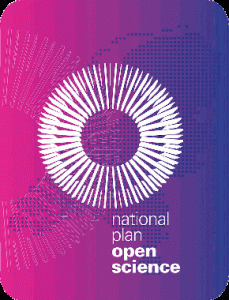 Access to information and data is a pre-requisite for development and a fundamental human right which can support sustainable development. Greater availability to information and data will also lead to more informed decision making and improved allocation of resources. Without access to information and data we risk wasting money and effort by reinventing the wheel when we repeat research that has been done already.
Access to information and data is a pre-requisite for development and a fundamental human right which can support sustainable development. Greater availability to information and data will also lead to more informed decision making and improved allocation of resources. Without access to information and data we risk wasting money and effort by reinventing the wheel when we repeat research that has been done already.
It is important that research results are available for people everywhere in the world. Also for people who cannot afford to pay expensive access to information and data and for whom the research results could be very important and maybe even could benefit the most out of it.
In the Netherlands, we have a special situation since our former State Secretary of Education took the position that publicly funded research should be freely available.
He aimed to have open access to 60% of Dutch scientific publications in 5 year’s time (2019) and 100% in 10 year’s time which is 2024.
But it even turned out better.
In May 2016 the European ministers of science, innovation, trade, and industry decided that from 2020 all scientific articles must be freely available to everyone. This goal is part of a broader set of recommendations that has been done to promote open science. The Ministers also decided that research data, if possible, should be published as open data and that the data must be made available to third parties.
This European decision for fully open access of scientific articles in 2020 was ahead of the position of State Secretary of Education
After this European statement, our State Secretary of Education took the next step. He sends a letter to the Dutch parliament on Open Science. He wants a broad coalition of stakeholders to develop a National Plan of Open Science. The stakeholders started working on this and in February 2017, they presented the National Plan Open Science (NPOS), The Netherlands, to our government.
In the report three important key issues are identified by the different stakeholders for the coming years:
- aim to publish 100% open access
- make possible the optimal reuse of research data and
- develop matching evaluation and reward systems for researchers
The motto of the report is: as open as possible, as closed as necessary. A platform of stakeholders will monitor the progress of the key issues mentioned in the report.
I am very happy with and proud of the fact that in The Netherlands Open access to publications and optimal reuse of research data are becoming the standard for all knowledge institutes and research areas.
The full report can be downloaded from the website Open Science
Marga Koelen
Research Support Coordinator Faculty of Geo-Information Science and Earth Observation, University of Twente
November 2017